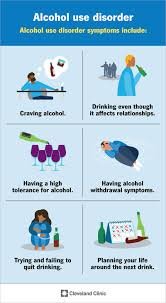The Role of Alcohol Use Disorder in Autoimmune Disorders
In addition to significantly impairing the body‘s ability to fight off infections, alcohol use disorder can also play a role in triggering or worsening autoimmune disorders.
Research has demonstrated that prolonged alcohol use can disrupt the immune system’s ability to accurately distinguish between harmful pathogens and the body‘s own cells, throwing off the balance that is necessary for healthy immune function.
This disruption not only weakens the body‘s overall immune response but also increases the likelihood of developing autoimmune conditions such as rheumatoid arthritis, lupus, and multiple sclerosis. Alcohol’s impact on the immune system can exacerbate the symptoms of these diseases, leading to more frequent flare-ups and accelerated tissue damage.
As a result, individuals with alcohol use disorder face heightened risks of both developing autoimmune disorders and experiencing worsened health outcomes if they already suffer from these conditions. The interplay between alcohol use and autoimmune disorders further underscores the importance of addressing alcohol consumption in the management and treatment of chronic health conditions.
Managing alcohol use disorder through effective treatment can help reduce the risk of autoimmune flare-ups and other immune-related complications. For individuals with preexisting autoimmune conditions, alcohol use disorder treatment can play a key role in preventing the worsening of their symptoms.
Impaired Healing and Recovery
The immune system is also responsible for healing injuries and recovering from surgeries or illnesses. Alcohol use disorder delays the body‘s ability to heal by reducing the production of cytokines, proteins that regulate the immune response and facilitate tissue repair. As a result, individuals with alcohol use disorder may find that even small wounds take longer to heal, and they may experience complications from surgeries or infections.
Alcohol use disorder treatment must address these delayed healing processes by encouraging behaviors that promote health and recovery. Proper nutrition, hydration, and rest are key components of treatment plans aimed at helping the body heal and restore immune function.
Long-Term Immune System Damage
For those who have been living with alcohol use disorder for years, the damage to the immune system can be long-lasting. Chronic alcohol use depletes the body‘s reserves of essential nutrients, such as vitamins and minerals that are critical for immune function. Vitamin deficiencies, particularly of vitamins A, C, and D, are common in individuals with alcohol use disorder and contribute to the weakening of the immune system.
Alcohol use disorder treatment often includes nutritional counseling and supplementation to address these deficiencies. Replenishing the body‘s nutrient stores is crucial for rebuilding immune function and improving overall health during the recovery process.
Strengthening the Immune System Through Treatment
The good news is that the immune system can recover with time and proper care. Alcohol use disorder treatment provides individuals with the tools they need to not only overcome their addiction but also rebuild their immune system and overall health.
This process includes detoxification, where the body begins to heal from the effects of alcohol, as well as ongoing medical support to monitor and address any health issues that arise during recovery.
Lifestyle changes such as a balanced diet, regular exercise, and adequate sleep are also crucial in restoring immune function. Many alcohol use disorder treatment programs offer holistic approaches that incorporate these lifestyle adjustments, helping individuals strengthen their immune systems as they work toward long-term sobriety.







